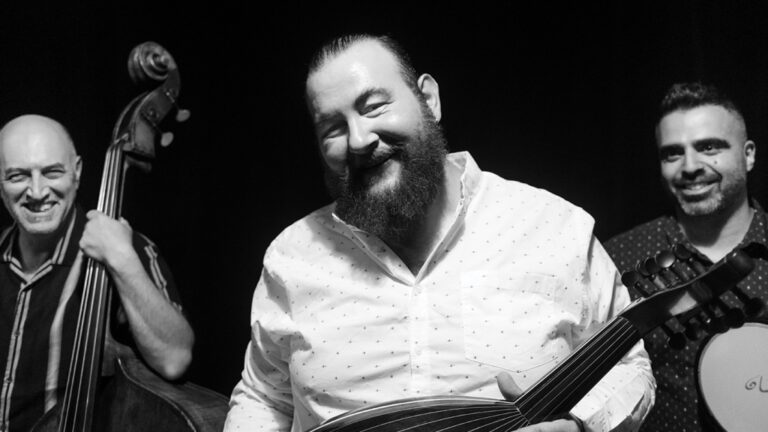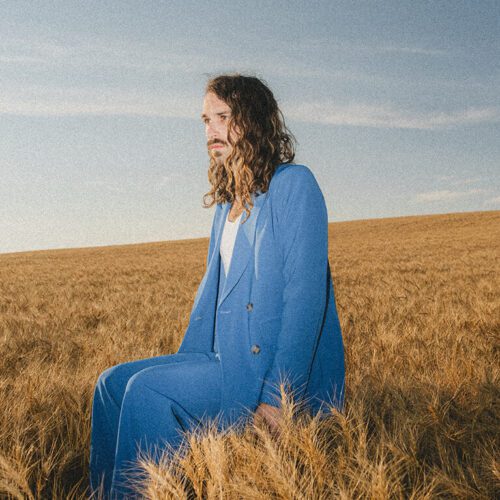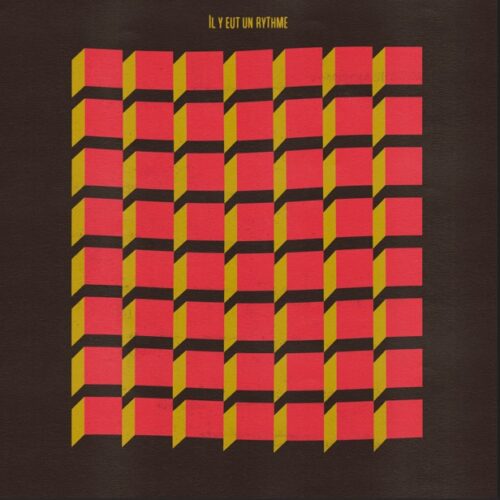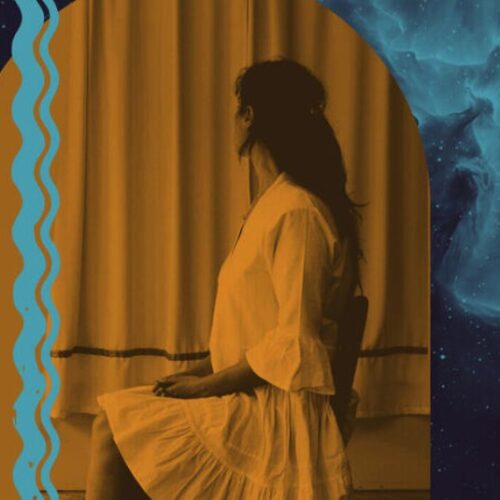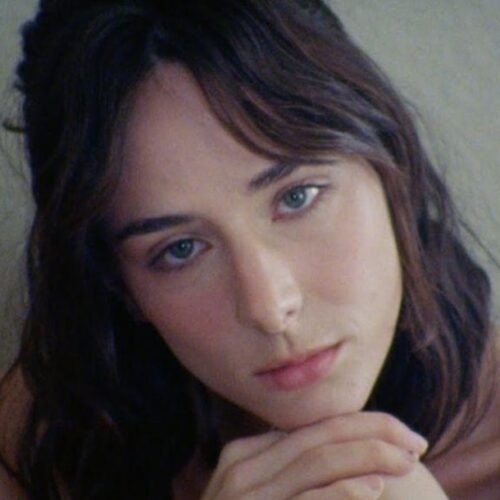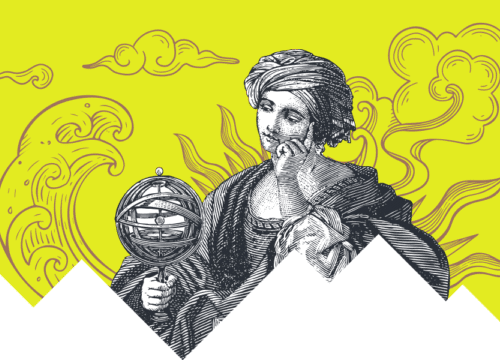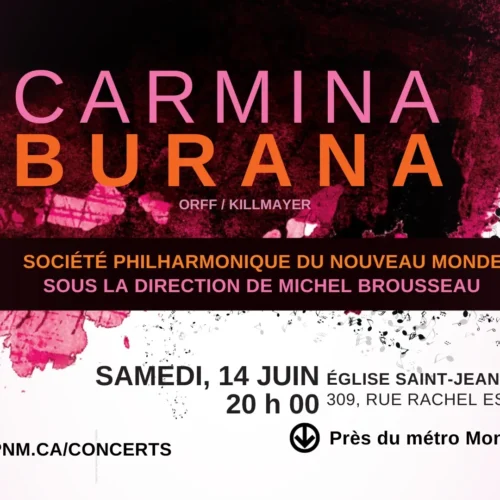Additional Information
We sat with renowned Oudist Nazih Borish to discuss his upcoming performance at FMA this year. Originally from Syria, Nazih relocated to Canada in 2016 and since then has been a tour de force of Middle-Eastern and contemporary music nationwide.
Nazih Borish plays November 7th at 7PM at Salle Claude-Léveillée, Place Des Arts
Nazih: Of course.
PAN M 360: Maybe you can tell us a bit more about your performance. I saw in the program it has the tagline “from Damascus to Cordoba”. Will you be playing with your group or unaccompanied?
Nazih: Actually this will be a solo performance. I like to play with a band, but with a band, it’s always a bit more organised, you know, and sometimes I like the freedom that comes from playing alone. I can improvise. So just I close my eyes and whatever my situation I will play and try to have the audience join me, join my ideas, join the music. Not that everything will be improvised. I will be playing some compositions and improvising within them, I would say almost like 50/50.
I will play a piece, it’s called Andalusyria. It’s the title of a new project for us, and like this performance,we start with the story of the oud in Syria, and we tell the tale of the travellers who took the instrument from Damascus all the way to Spain.
PAN M 360: So, what is the story of the Oud for those of us who don’t know? Well the simple story I should say.
Nazih: So yes, it’s exactly as you say. I can only give you a simple version, because there are many many stories about how and where the oud came to be. It has different names in China, the pipa, the biwa in Japan, and the sitar in India, and the oud really is the grandfather of string instruments. My last project, The Roots of Strings, was exactly about that.
PAN M 360: And what is your story with the Oud?
Nazih: Oh, my history with the Oud. Well my father, he was like a pop singer. It’s not the pop that you might be thinking of, he was not like very, very famous, you know. But he was still well known and so he was playing this instrument and singing all the time. My uncle plays the violin as well. So I grew up with the music in the family. At that time, there was no YouTube, no internet in Syria, in my country, no nothing. The only thing was the cassette, do you remember those?
I will tell you something about cassettes, because I respect these things. I still keep a car from 2004 because it has a cassette player. I keep it out of respect, it’s how I learned everything. With my father we listened to Munir Bashir in the car. Do you know Munir Bashir? He was an oud player from Iraq. For me, he’s the philosophy of the oud. Because he was playing without borders, without geography. At the same time I listened to a lot of Ravi Shankar, Paco de Lucia.
That’s why I like to mix all these musical cultures and styles on this instrument, this “traditional instrument”. Some people they say, okay, you cannot play more than traditional music on the oud but I don’t accept that. Since I arrived here in Canada and and now I am proudly Canadian, I have been playing with many bands and many kinds of different music, like baroque music and jazz. That’s what I was dreaming about when I was young!
Nazih: Yeah, no borders, no genres, this is my message actually as a musician. I want to break the rules of how to use this instrument, because it’s actually a very, very open instrument. Six strings, no frets. You can do a lot. Music is only sound after all. And I find the Canadian audiences to be very interested and interesting to perform for. They know about our culture, and know about many different cultures. They care about the music, and the audience here are very respectable. So you cannot play just anything for them. You have to be careful when you get on stage here.
PAN M 360: Well how are you preparing for your concert tomorrow? What are you thinking about? Are you practicing a lot?
Nazih: Look, the practice I do before a day of the concert is to be calm. It’s not physical practice but physiological, you know. To stay calm, to stay focussed. I do the physical practice maybe 15 minutes before a concert. Just to warm up, it’s very necessary.
But the practicing I’ve been doing is to be ready for the people, because as I said the audience are very, very respectable. I don’t speak too much on stage, some people think I’m shy but I’m trying to give all my energy to the music and that’s it. I prefer to let the audience imagine the stories. Like one of my compositions “Damasrose”, it’s the name of the jasmine flower, typical of the streets of Damascus. That image with the music is all you really need to take the journey with me.
PAN M 360: I’m really looking forward to your show and I’m wishing you all the best.
Nazih : Thank you.
